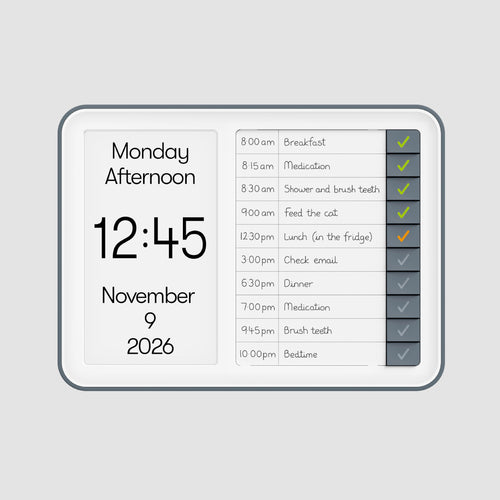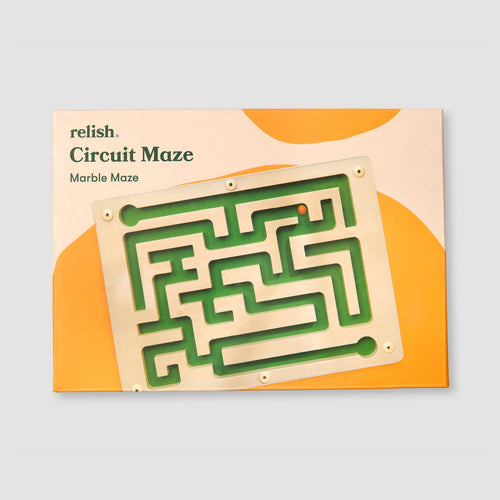As we start to age, it is natural that we begin to become more aware of our and our loved ones, physical and mental health. We may begin attempting to spot signs of ageing and illness, and, as one of the fastest-growing diseases in the elderly, the most common concern is dementia. So, what is a normal part of ageing and when it’s time to speak with a doctor. Here we run through the most common early dementia symptoms to look out for.
What are the early warning signs of dementia and Alzheimer’s?
1. Memory Loss and Forgetfulness
By far the most well-known dementia symptom is memory loss, and for early signs, you need to pay most attention to short-term memory. This can be forgetting recent conversations or what was eaten for breakfast this morning, as opposed to forgetting an event that happened some time ago. People may also need to be reminded about regular activities, important dates or tasks that a person would usually complete without prompting.
Memory loss can also lead to repetition of conversations and tasks. However, remember that memory problems affect us all at some point, so it is only when this short-term memory loss starts to happen regularly that it may become a cause for concern.
- Poor short-term memory, such as forgetting recent conversations or what they have eaten that day.
- Needing reminders of regular activities or important dates.
- Repeating conversations and tasks several times without realising.

2. Language and Conversation Issues
From time to time, we can all mix our words or struggle to find the right word for something, particularly when we’re over-tired. However, regularly struggling to find the right word to say or not remembering the correct term for something ordinary can be the first sign of dementia or Alzheimer’s disease. Similarly, replacing a correct word with an incorrect one can also indicate an issue. It can also be the case that a person will struggle to follow or take part in a general conversation that previously they would have participated in.
- Struggling to find the right words or not finding the correct term for something.
- Replacing a correct word with an incorrect one.
- Issues following or participating in general conversations.
3. Difficulty Completing Familiar Tasks
This will often start with a marked change in the ability to undertake more complex tasks, like playing a favourite game or driving, and will then develop to difficulty in completing simple, day-to-day tasks, such as putting away laundry. A person may find that once familiar tasks start to become unfamiliar, such as forgetting a usual travel route, which can be very unsettling. Additionally, a person may begin to struggle to learn and carry out new tasks or instructions.
- Difficulty undertaking complex tasks such as game-playing or driving.
- Familiar day-to-day responsibilities, such as putting away laundry, become challenging and unfamiliar.
- May struggle to learn new tasks or carry out instructions.

4. Depression and Withdrawal
Dealing with the early stages of dementia can be incredibly daunting for a person, as they find themselves suddenly unable to remember what they did earlier on in the day or forget a family member’s name. As this happens, they may begin to crave routine and structure as this gives them a sense of control. Any sudden change to that routine may agitate or distress them. With this in mind, people with dementia can often feel lonely and misunderstood prompting them to withdraw from loved ones. This can lead to depression.
- Dealing with early stage dementia can be daunting and people may crave routine and structure as a sense of control.
- Challenges to this routine or structure can cause agitation and distress.
- People can feel lonely and misunderstood causing withdrawal and depression.
5. Poor Decision Making
Dementia affects the brain’s ability to understand and process information properly. Therefore, an inability to make appropriate decisions or noticeably impaired judgement can be a sign of dementia or Alzheimer’s, especially when this is out of character. It could also be seen in a lack of self-care or poor personal hygiene, such as refusing to eat properly, shower or changing clothes frequently. Some people’s behaviour becomes inappropriate and makes people particularly uncomfortable or awkward.
- Dementia affects the ability to understand and process information properly.
- People may make inappropriate decisions or have bad judgement.
- Spending money recklessly, poor hygiene and inappropriate social behaviour are common indicators of poor decision making.
6. Confusion
Confusion is a common sign of early dementia due to difficulties with memory and judgement. As memory loss starts to develop, people with dementia may become increasingly confused with the world around them as they try to negotiate unfamiliar people and struggle to keep up and join in with conversations. Being disoriented and losing track of the construct of time are tell-tale signs to look out for.
- Confusion is common due to difficulties with memory and judgement.
- The world may become confusing, people and places unfamiliar and conversations difficult to participate in.
- Clear signs are disorientation and difficulty keeping pace with time.
7. Misplacing Items
Whilst we have all misplaced our keys or phone at some point, doing this often, and forgetting where familiar items are kept or putting the items in bizarre places, such as a wallet in the washing machine, can be a signifier of dementia. Additionally, suspicion and accusing people of theft when items are misplaced, can also be a dementia symptom.
- Forgetting where familiar items are kept, such as house keys.
- Putting items in bizarre places, such as a wallet in the washing machine.
- Accusing others of theft when items are misplaced.
8. Vision and Balance Problems
Some people with dementia experience issues with their vision even if their eyes are healthy. People could have difficulty with colour contrast, distance and coping with bright or low lights. This can make it tricky to read, locate objects or recognise people. It can also cause people to be more clumsy, fall over more and feel unstable when walking or standing.
- Vision issues even if eyes are otherwise healthy.
- Could have challenges with colour contrast, distance, bright or low lighting.
- Could also be clumsy, prone to falling over and feeling unstable when walking or standing.
9. Mood and Personality Changes
A common symptom of early dementia is mood change, often with sharp mood swings, irritability and lashing out. Particularly noticeable if that isn’t characteristic. So, someone could be calm and happy one minute and then burst into tears or start shouting the next, for seemingly no reason. They may also experience a personality change, perhaps becoming more extroverted than before.
- Dementia can cause sharp mood swings, irritability and lashing out.
- May be happy one minute and upset or angry the next, for no apparent reason.
- May experience a personality change, such as increased extroversion.
10. Difficulty Managing Finances
As dementia affects cognition, people may begin to struggle with simple maths. What was once easy may now feel too complicated. This can be a challenge for managing household finances and paying bills. Issues with day-to-day finances, such as paying for shopping or mismanaging finances, may start to occur. Spending money recklessly is another way this could play out.
- Simple maths may become challenging.
- Could cause struggles with managing household finances and paying bills.
- Issues with day-to-day finances and reckless spending.

Please remember
It is important to note that whilst these signs and symptoms can be an early indicator of dementia, experiencing any of these does not mean you or a loved one definitely has dementia. If you have any concerns, you should visit a GP and undertake a full assessment.
Wellbeing products for those in the early stages of dementia
At Relish, we believe in bringing joy to people living with dementia or Alzheimer’s. From games, radios, jigsaw puzzles and reminiscence aids, we develop specialist products that improve the wellbeing of people at any stage of dementia. Browse products for those with early-stage dementia.






















